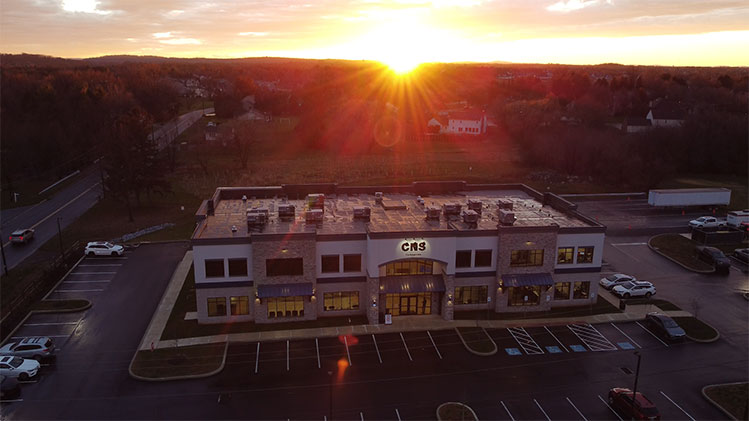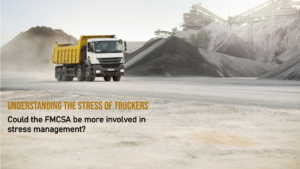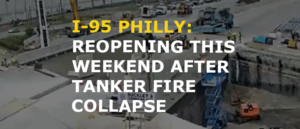Furry Friends Cause Trucking Border Delays At Canadian Border
To prevent reintroduction of rabies carried by dogs into the United States, new CDC regulations require proof of healthy pets at border crossing. Truckers who
We are a team of DOT Compliance and Licensing Professionals helping trucking and transportation companies remain safe, compliant, and profitable.
CNS or Compliance Navigation Specialists is DOT Compliance company that assists trucking and transportation companies remain DOT Compliant. We are part of a network of companies, CNS Companies, specializing in services related to the transportation, manufacturing, construction, service, education and medical industries.

A full-scale DOT Compliance Program managing a long haul carrier’s safety, compliance, licensing and more.
Learn more >>>
A DOT Compliance Program that keeps motor carriers compliant with the 6 Basic DOT Regulations required of all carriers.
Learn more >>>
Our Short-Haul/Construction Program is a full-scale program designed for private carriers that do not haul for-hire.
Learn more >>>
Our most comprehensive DOT Compliance Program, operating as your company’s off-site Safety Director or assisting your current safety personnel.
Learn more >>>
Our Non-CDL Program is a full-scale program managing safety, compliance, licensing and more for moving companies, couriers, landscapers, or any company subject to DOT regulations and does not employ CDL drivers.
Learn more >>>
Our DOT Audit Services cover a number of different types of DOT Audits that new and existing carriers will be subject to.
Our DOT Driver Services help trucking companies and carriers to stay compliant as they grow and hire more drivers.
Our DOT Vehicle Services focus on ensuring your vehicles are compliant with DOT Regulations, which is just as important as your drivers.
Our DOT Services for Special Carriers focus on companies outside of the typical motor carrier, like HAZMAT, Passenger and Bus Carriers.
CNS is part of a group of companies that offer other necessary services for the trucking and transportation industry, such as Commercial Trucking Insurance, CDL Training, Online Training Course, and even Healthcare.
Our DOT Licensing Services will cover you whether you are an existing company or just starting a trucking company. Our DOT Licensing Specialists can help you get up and running and in days with your DOT number, MC Authority, EIN, UCR, IFTA, 2290 HVUT, Fuel Taxes and can even set you up to get your Commercial Driver's License (CDL) with CNS Driver Training Center.
Our DOT Licensing Specialists will help you with every aspect of starting a trucking company. All you need to do is choose a name for your trucking company.
You will need to ensure your DOT Number, MC Authority, Vehicle Registration, etc. is all set up properly when you start your trucking business.
Our Licensing Specialists can help with all aspects of filing and renewing licenses, fuel taxes, etc.
CNS is part of a group of companies that offer other necessary services for the trucking and transportation industry, such as Commercial Trucking Insurance, CDL Training, Online Training Course, and even Healthcare.
To prevent reintroduction of rabies carried by dogs into the United States, new CDC regulations require proof of healthy pets at border crossing. Truckers who
CNS or Compliance Navigation Specialists is DOT Compliance company that assists trucking and transportation companies remain DOT Compliant. We are part of a network of companies, CNS Companies, specializing in services related to the transportation, manufacturing, construction, service, education and medical industries.
CNS Companies is a network of companies specializing in services related to the transportation, manufacturing, construction, service, education and medical industries. Our DOT Compliance division is handled by Compliance Navigation Specialists, CNS Insurance handles Commercial Truck Insurance, CDL training is managed by the CNS Driver Training Center and healthcare is managed by CNS Occupational Medicine.
We are a team of DOT Compliance and Licensing Professionals helping trucking and transportation companies remain safe, compliant, and profitable.
CNS or Compliance Navigation Specialists is DOT Compliance company that assists trucking and transportation companies remain DOT Compliant. We are part of a network of companies, CNS Companies, specializing in services related to the transportation, manufacturing, construction, service, education and medical industries.

A full-scale DOT Compliance Program managing a long haul carrier’s safety, compliance, licensing and more.
Learn more >>>
A DOT Compliance Program that keeps motor carriers compliant with the 6 Basic DOT Regulations required of all carriers.
Learn more >>>
Our Short-Haul/Construction Program is a full-scale program designed for private carriers that do not haul for-hire.
Learn more >>>
Our most comprehensive DOT Compliance Program, operating as your company’s off-site Safety Director or assisting your current safety personnel.
Learn more >>>
Our Non-CDL Program is a full-scale program managing safety, compliance, licensing and more for moving companies, couriers, landscapers, or any company subject to DOT regulations and does not employ CDL drivers.
Learn more >>>
Our DOT Audit Services cover a number of different types of DOT Audits that new and existing carriers will be subject to.
Our DOT Driver Services help trucking companies and carriers to stay compliant as they grow and hire more drivers.
Our DOT Vehicle Services focus on ensuring your vehicles are compliant with DOT Regulations, which is just as important as your drivers.
Our DOT Services for Special Carriers focus on companies outside of the typical motor carrier, like HAZMAT, Passenger and Bus Carriers.
CNS is part of a group of companies that offer other necessary services for the trucking and transportation industry, such as Commercial Trucking Insurance, CDL Training, Online Training Course, and even Healthcare.
Our DOT Licensing Services will cover you whether you are an existing company or just starting a trucking company. Our DOT Licensing Specialists can help you get up and running and in days with your DOT number, MC Authority, EIN, UCR, IFTA, 2290 HVUT, Fuel Taxes and can even set you up to get your Commercial Driver's License (CDL) with CNS Driver Training Center.
Our DOT Licensing Specialists will help you with every aspect of starting a trucking company. All you need to do is choose a name for your trucking company.
You will need to ensure your DOT Number, MC Authority, Vehicle Registration, etc. is all set up properly when you start your trucking business.
Our Licensing Specialists can help with all aspects of filing and renewing licenses, fuel taxes, etc.
CNS is part of a group of companies that offer other necessary services for the trucking and transportation industry, such as Commercial Trucking Insurance, CDL Training, Online Training Course, and even Healthcare.
To prevent reintroduction of rabies carried by dogs into the United States, new CDC regulations require proof of healthy pets at border crossing. Truckers who
CNS or Compliance Navigation Specialists is DOT Compliance company that assists trucking and transportation companies remain DOT Compliant. We are part of a network of companies, CNS Companies, specializing in services related to the transportation, manufacturing, construction, service, education and medical industries.
CNS Companies is a network of companies specializing in services related to the transportation, manufacturing, construction, service, education and medical industries. Our DOT Compliance division is handled by Compliance Navigation Specialists, CNS Insurance handles Commercial Truck Insurance, CDL training is managed by the CNS Driver Training Center and healthcare is managed by CNS Occupational Medicine.

There will be at least 6 vaccines that will likely meet acceptable effectiveness – we will dive into the first 2 announced.
This November has seen the highest jump in reported COVID-19 cases, hospitalizations, and deaths across the U.S. and in states where a major outbreak had not previously appeared.
While wearing masks and increasing social distancing can reduce the spread of COVID, it does not kill the disease, just slows it down to acceptable levels to keep our healthcare at reasonable capacities.
The only way to truly get ahead of the pandemic and back to normal life is scientifically approved vaccines to be distributed across the globe.
Vaccine researchers deserve to be praised for finding highly effective vaccines, with no major side effects, in only ten months with the capability to have millions of vaccines available by the end of the year.
Two major super-pharma companies have released human trial results in the past week. Pfizer’s vaccine trial showed an effective rate of 95% with hopes to distribute around 50 million vaccine by the end of the year. Moderna’s vaccine trial showed an effective rate of 94.5% and hopes to distribute around 20 million by the end of the year.
In perspective, the annual flu vaccine hopes to achieve over 60% effective rates as biologists must guess what various flu strains will look like for the next flu season.
To transport and deliver these vaccines, the Pfizer vaccine is required to be kept at -70 degrees Celsius and the Moderna vaccine to be kept at -20 degrees Celsius.
To note, there are 4 other vaccines that will likely meet acceptable effectiveness that will also be easier to produce and distribute.
So, what will the logistics look like for these two vaccines?
Not only does Pfizer and Moderna plan to produce a billion vaccines each to be distributed worldwide, but both vaccines require two doses for proper immunity.
These vaccines also require cold supply chains, or to be refrigerated from production to distribution, to extend the shelf-life of the vaccine.
This means everything must be kept chilled with a massive amount of special equipment, reefer trailers, containers, and more.
According to NBC News, “Pfizer is marshaling a massive new cold-storage supply chain to handle the delicate dance of transporting limited doses of its coronavirus vaccine from manufacturer to any point of use within two days.”
The company says the vaccines will be packed below dry ice inside thermal packaging containers developed by Pfizer, which should maintain the -70 degree Celsius requirement for enough time to transport the vaccine from manufacturer to distribution points through standard pharmaceutical reefer trailers at -30 Celsius.
The packages, containing 1,000 to 5,000 doses, will be shipped by air to major distribution hubs and then delivered by trucks to hospitals, outpatient clinics, community vaccination locations and pharmacies.
However, everyday pharmacies are not able to stockpile large quantities of vaccines that require subzero storage. Though, pharmacies may be able to keep Pfizer’s cooler-size boxes on hand, and other vaccines can be stored at less extreme temperatures.
According to the New York Times, UPS is creating a freezer farm in Louisville, KY where it can store millions of doses of vaccine at subzero temperatures. FedEx already has machines in warehouses that can produce dry ice, and UPS said it was considering adding them.
Gen. Gustave Perna, the chief operating officer for the government’s Operation Warp Speed, which is tasked with distributing the vaccine, said Sunday on CBS’ “60 Minutes” that tracking and tracing every dose will require the use of a program called Tiberius that links databases from shipping companies and the government, a capability that didn’t exist two months ago.
With tens of millions of vaccines going to the most populous states and our healthcare workers first, what can we do now?
The most important thing we can do is to help flatten the curve. We are in the worst period of the pandemic and many are facing “pandemic fatigue”. But we must stay vigilant in wearing our masks, think about what your holiday plans will look like with masks and social distancing, and being kind to those who agree or disagree with each other.
Our healthcare workers are dealing with 36-hour shifts, collapsing with emotional distress, and not feeling the hero status they rightly deserve like in the beginning of the pandemic.
Let us be thankful and share the love and kindness we celebrate during the holidays with those on the frontlines.
We offer on-site pre-shift screenings, screening questionnaires and temperature screenings for your distribution site, terminal, construction site or office.
We also offer antibody testing, which provides insight into employee exposure by determining whether or not they have developed COVID-19 antibodies.
If you think your business may be a candidate for prescreening temperature checks or antibody testing, you can contact us now or learn more about our COVID-19 services.

Article written by Tim Miller, CNS How stressful is your job? Do you think about it while off the clock? Does it make you anxious

BREAKING: Collapsed I-95 in Philadelphia will open “this weekend”, governor says! North Philadelphia stretch of I-95 is expected to reopen within the next two weeks

As we slowly come out of the COVID-19 pandemic, the construction and landscaping industries are poised to start the spring season with many new safety

COVID-19 vaccines are currently being given to Phase 1A, frontline health care workers and residents and staff at long-term care facilities. On December 20, 2020,
Our DOT Compliance Programs ensure it is your top priority and keeps your business running.
Receive the latest transportation and trucking industry information about FMCSA and DOT Audits, Regulations, etc.

Article written by Tim Miller, CNS How stressful is your job? Do you think about it while off the clock? Does it make you anxious

BREAKING: Collapsed I-95 in Philadelphia will open “this weekend”, governor says! North Philadelphia stretch of I-95 is expected to reopen within the next two weeks

As we slowly come out of the COVID-19 pandemic, the construction and landscaping industries are poised to start the spring season with many new safety
Join our monthly newsletter and stay up-to-date on trucking industry news and receive important compliance and licensing tips.
Join our monthly newsletter and stay up-to-date on trucking industry news and receive important compliance and licensing tips.